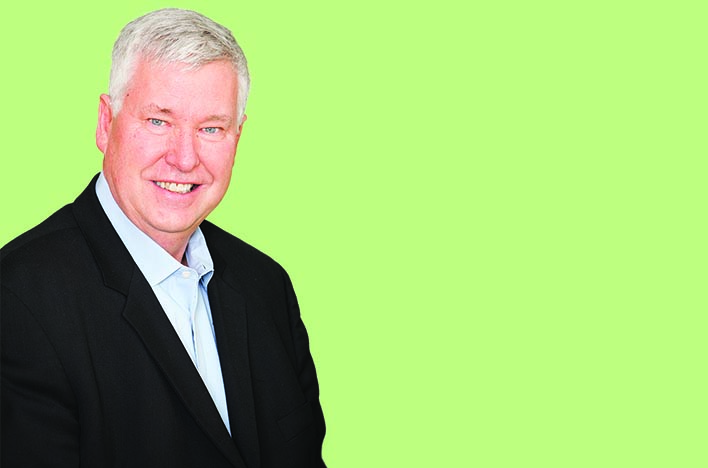Wendy Rinehart has spent much of her adult life working in the long-term-care insurance business.
But it wasn’t until her brother Edward was diagnosed with cancer that she realized how difficult it can be to actually use the policy. It wasn’t just the red tape. It was also the monthly paperwork that needed to be filed even as the entire family was experiencing devastating grief.
When she first called about her brother’s policy, Rinehart could barely get the words out before breaking down. She hung up.
Eventually, she gathered the courage to call back. She learned just how difficult that experience had likely been for some of her customers. She knew how to speak the language and decipher the policy with ease, but others didn’t. There had to be a better way for other families.
So Rinehart, husband David and Edward’s wife, Charlotte Crumm, decided to create ClaimJockey.
Here’s how it works: When it’s time to use a long-term-care policy, ClaimJockey offers to take care of the entire claims process from start to finish. The independent company works with families who need help processing claims, care providers and others. They provide expert advice, and they have a deep knowledge of the industry.
They liken it to having H&R Block help with taxes. Except it’s not a once-a-year procedure like filing taxes. Families are required to fill out paperwork every month to maintain long-term-care payouts.
“Because we’ve walked in other people’s shoes, we’ve lived it, we understand it, we bring this compassion to help other people’s families,” said Wendy Rinehart, who serves as ClaimJockey’s president.
Just a few years after forming, the Lee’s Summit business has grown with such speed that the Rineharts and Crumm are getting national attention. And now they’re working with ScaleUP! Kansas City to help fine-tune the business.
ClaimJockey was among a select group of Kansas City companies chosen to participate in the free ScaleUP! program, which is specially crafted for growing businesses. ScaleUP! offers classes, peer mentoring, professional guidance and more. It’s available to those who have been in business for at least two years, generate at least $150,000 to $750,000 in annual revenue and have a market capable of generating more than $1 million in sales.
Building a Plan for Big Growth
It’s easy to see the growth potential at ClaimJockey.
There are 10 million long-term-care policy holders in the United States. The policies gained traction in the 1960s, but the market really took off in the 1990s. Research indicates that families tend to hold on to a policy for 20 years, the founders said.
“There’s a tsunami of claims coming,” said David Rinehart, ClaimJockey’s CEO.
The company is trending toward $600,000 in revenue this year, but he believes that ClaimJockey could hit $155 million in five years.
Designing a plan to handle all that growth is imperative. “I don’t want to be a shooting star,” David Rinehart said. “You’ve got to build the infrastructure to handle the growth.”
The company needs about $2.5 million from investors in the short term so that it can build its capacity for future growth. And while the company was the first to market, the ClaimJockey team expects competitors.
The founders have completed deep market research, talking with nursing homes, elder law attorneys and others. Their plan for managing future growth was endorsed repeatedly.
ClaimJockey doesn’t publish its fees, but charges are typically less than 3 to 4 percent of what the family receives in benefits, David Rinehart said.
He estimates that average fees are about $2,600 annually.
“But the family is getting $100,000 out of that policy, and they have no responsibility,” David Rinehart said. “We do everything for them.”
Dealing With Red Tape So You Don’t Have To
Thanks to ClaimJockey, clients don’t have to spend hour after hour on the phone with their insurance company. ClaimJockey also has a much higher success rate for getting claims approved.
Having someone else who can deal with the red tape means a lot to families who may be worried sick about their loved one.
The founders understand that because of their own experience. Crumm, the executive vice president for marketing and communications, spent years providing compassionate care to her husband, Edward Crumm, Wendy Rinehart’s brother.
The Rineharts call her an angel. She’s been a guiding light for the company’s core value: helping people.
To do that, the company fosters a family environment among its 20 employees.
“If we’re going to work with families, we better have a family atmosphere in here,” David Rinehart said.
Understanding family dynamics, it turns out, is as important as knowing how the policies themselves work.
“When all the wheels are coming off,” David Rinehart said, “you’ve got to have somebody to talk to that understands family.”


